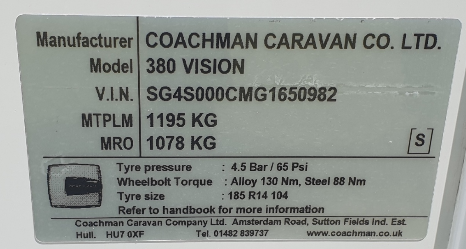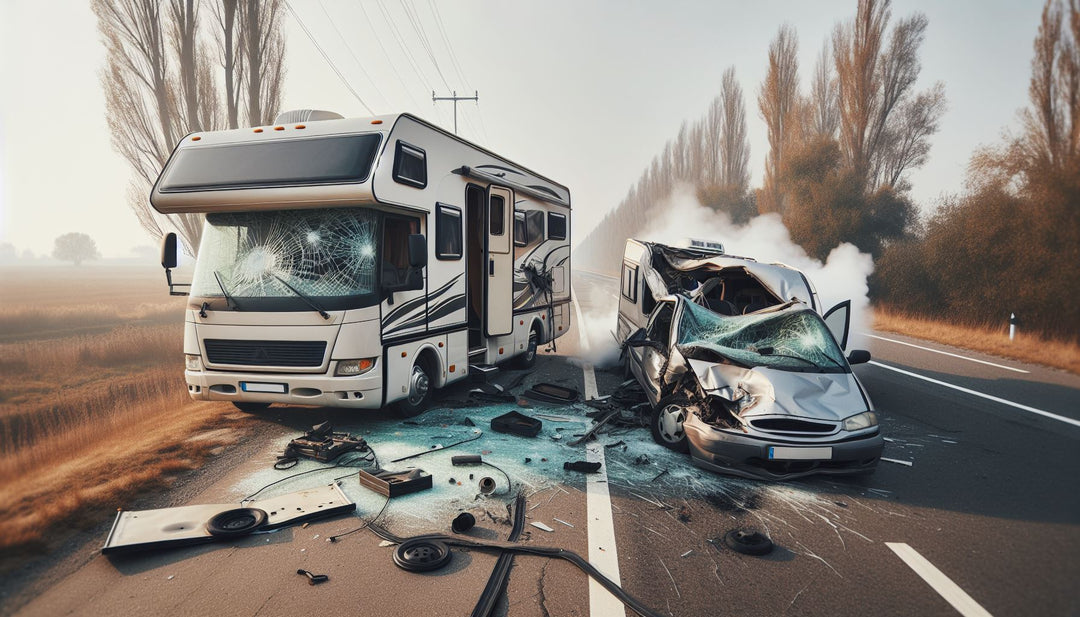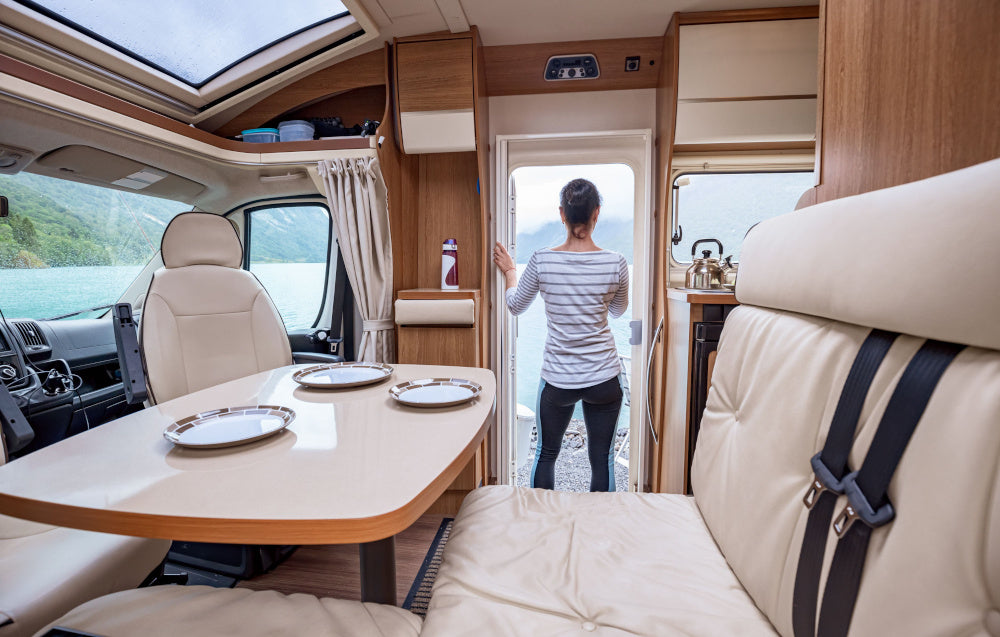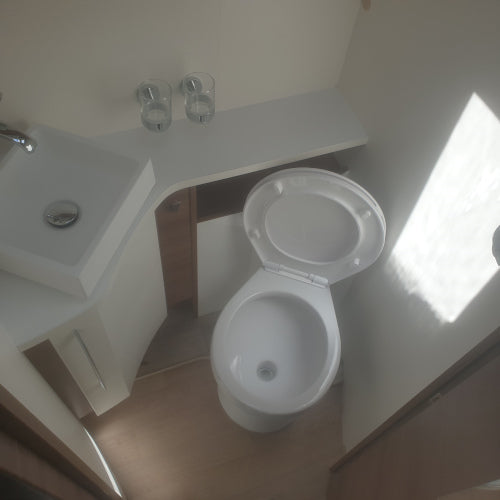Important issues regarding European caravans

This article discusses essential tips to help extend your caravan's life.
One of the most common mistakes is overloading your European caravan.
Every European caravan will have a manufacturer's plate located by the entrance door. This plate displays the vehicle's VIN number, its empty weight, and maximum carrying capacity.

In this example, the difference between the maximum payload weight and the empty weight is just 117 kg. If your caravan is equipped with various extras, such as motor movers, awnings, additional batteries, solar systems, and tanks, it’s important to add up the total weight of these items. It’s possible that this combined weight exceeds 117 kg. Therefore, it’s a good idea to weigh your caravan before embarking on your journey.
What are the consequences of overloading?
At Vantage RV, we have been overwhelmed repairing vehicles damaged due to overloading or aging suspensions. European caravans were designed to be towed by low-powered passenger vehicles on well-maintained motorways and highways.
In New Zealand, we tow trailers with powerful UTEs and SUVs on logging tracks and poorly maintained highways. The suspension and body can be damaged if the vehicle is overloaded and hits a pothole.
The suspension system uses built-in rubber components that absorb road shocks while driving, much like the Dura-Torque suspension commonly found in New Zealand. However, when the vehicle is overloaded, these rubber components become more compressed than usual and can no longer effectively absorb the road shocks. As a result, these shocks are transmitted through the vehicle.
Tips to avoid damage and costly bills
To save money, avoid overloading your cupboards with food. Instead, consider purchasing your supplies at your destination and carry most of the weight in the tow vehicle. Before you travel, weigh your vehicle and familiarize yourself with its carrying capacity. Calculate the total weight of all additional items and ensure that most of the weight is in the tow vehicle. If your vehicle has tanks, travel with them empty. Additionally, drive slowly when the road condition is questionable.


